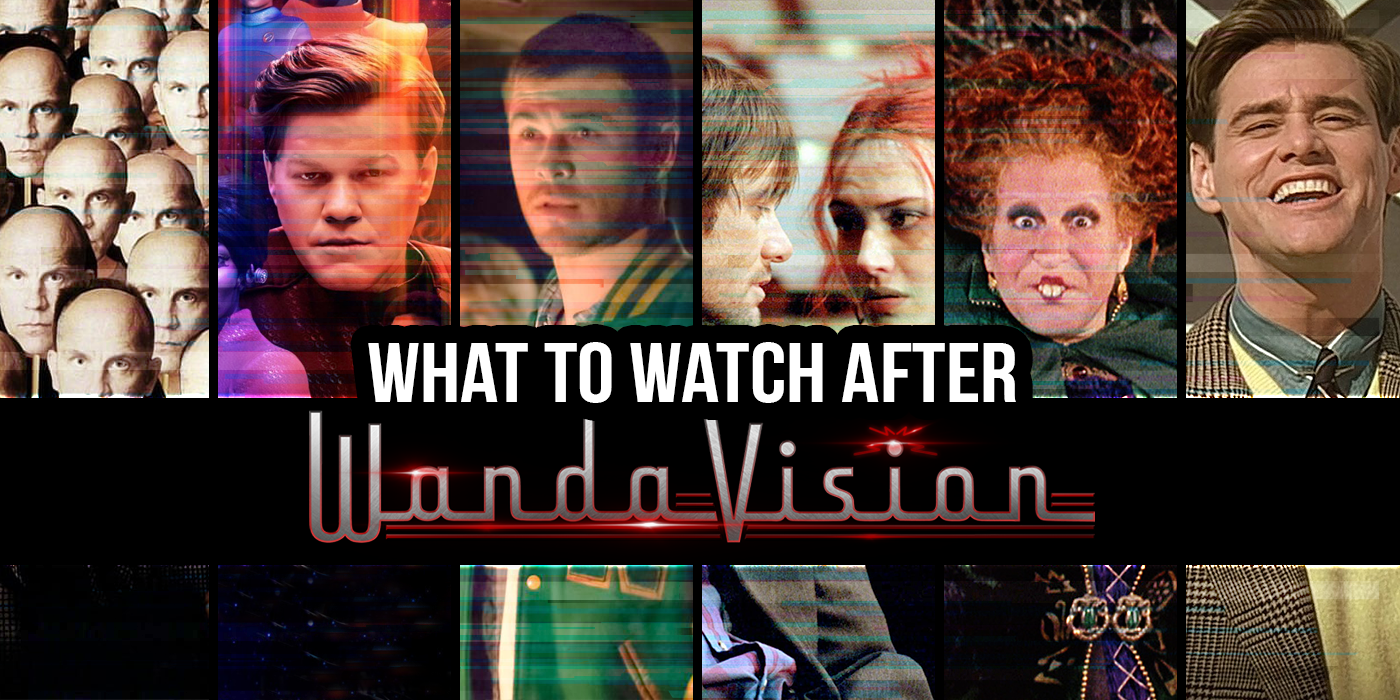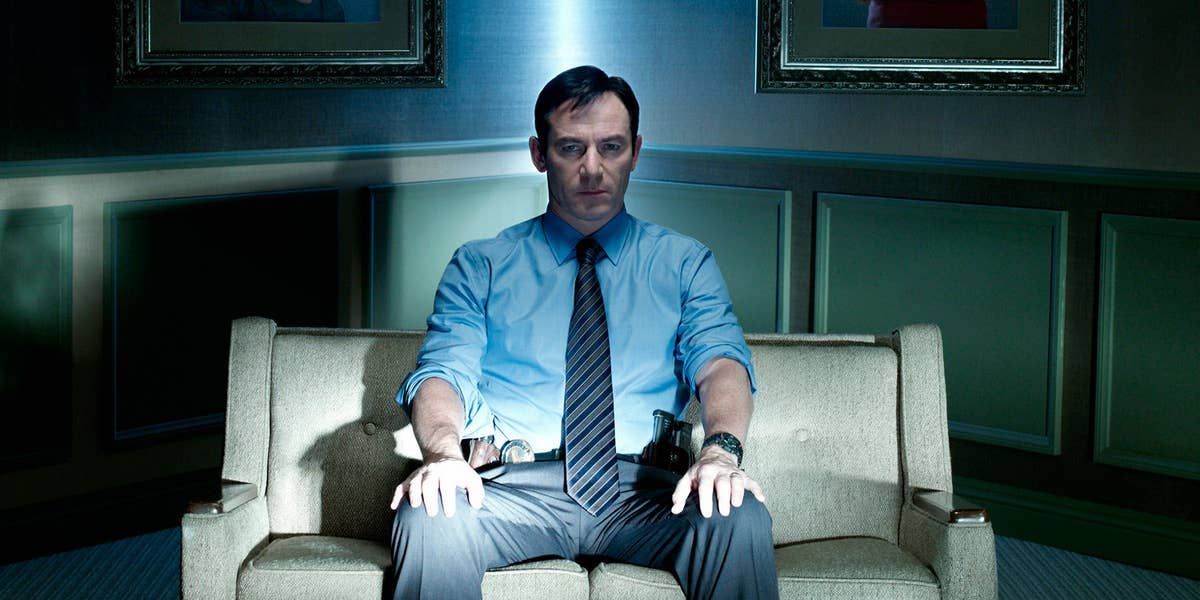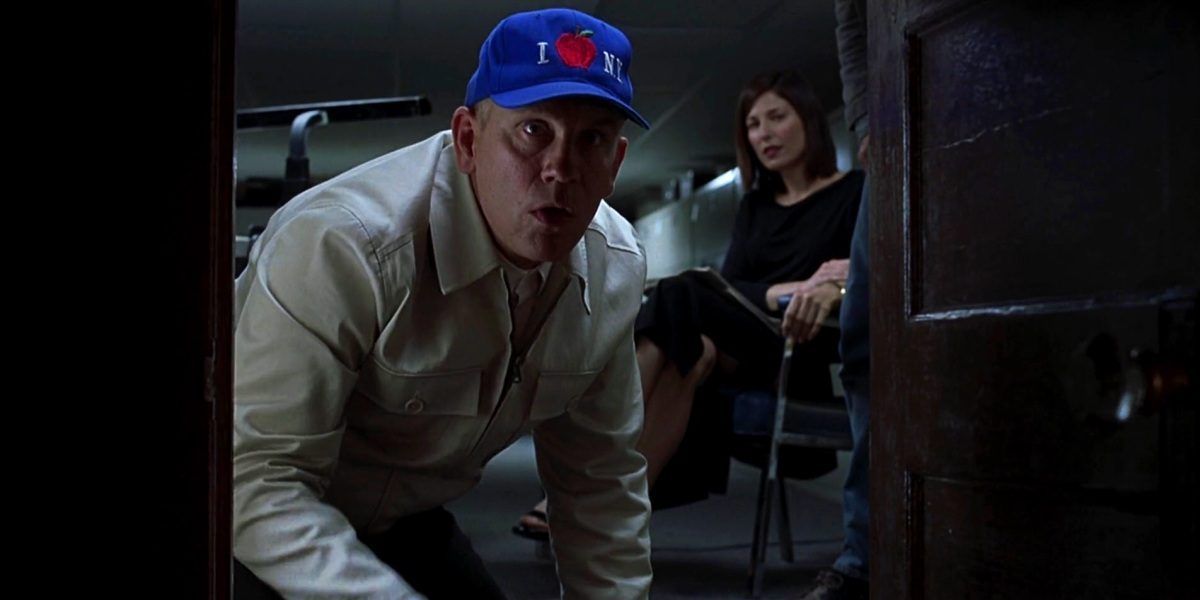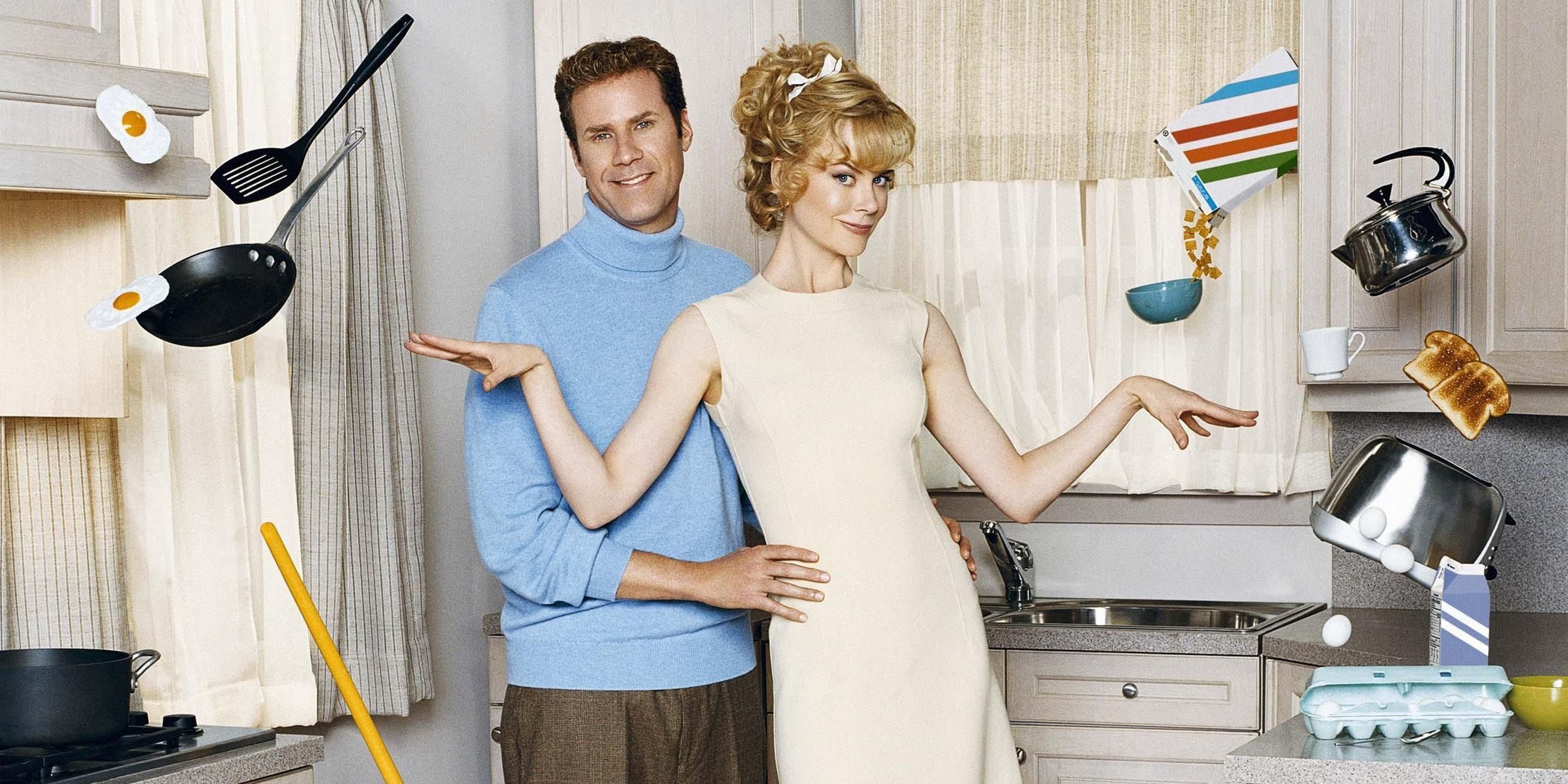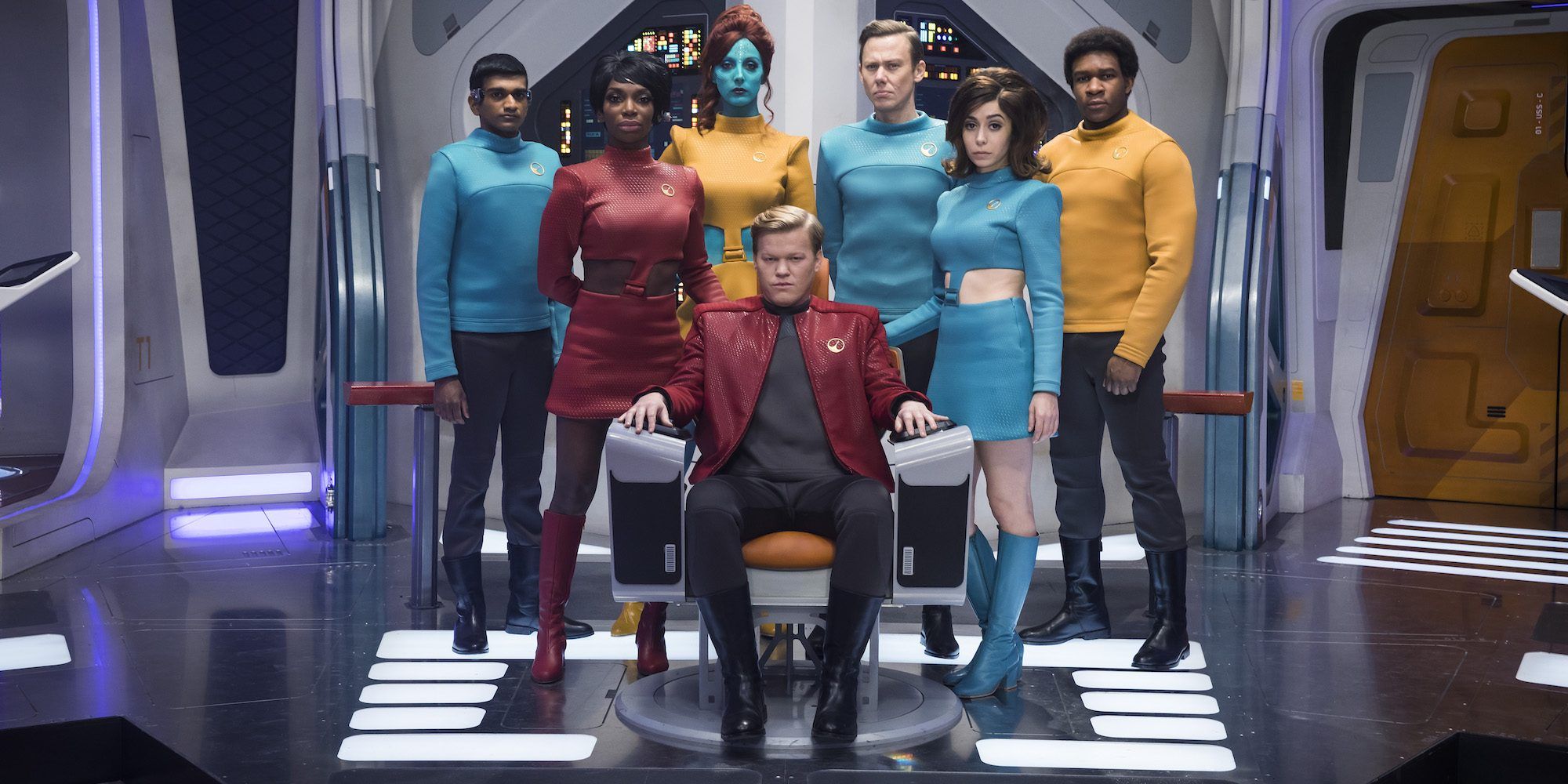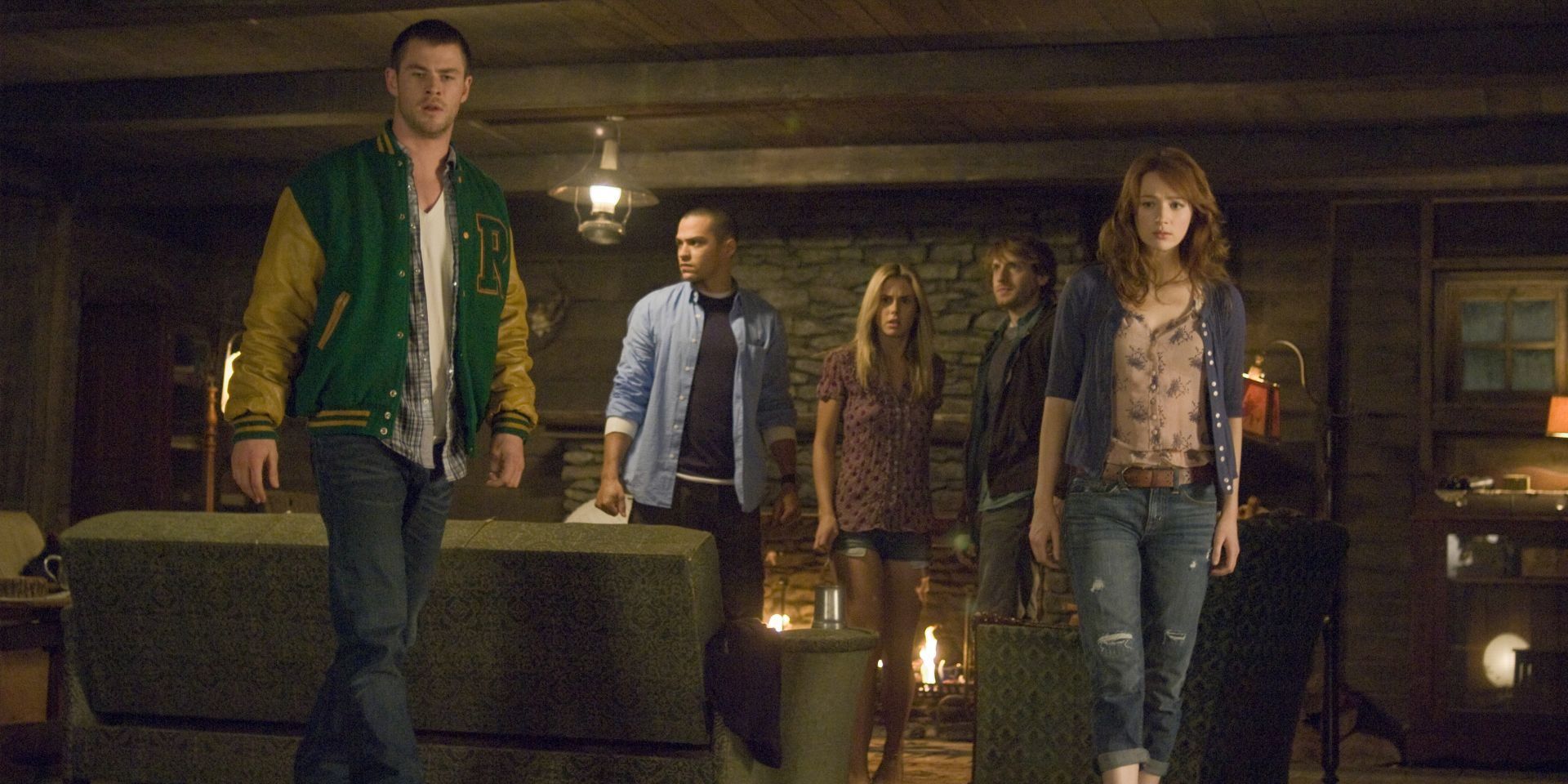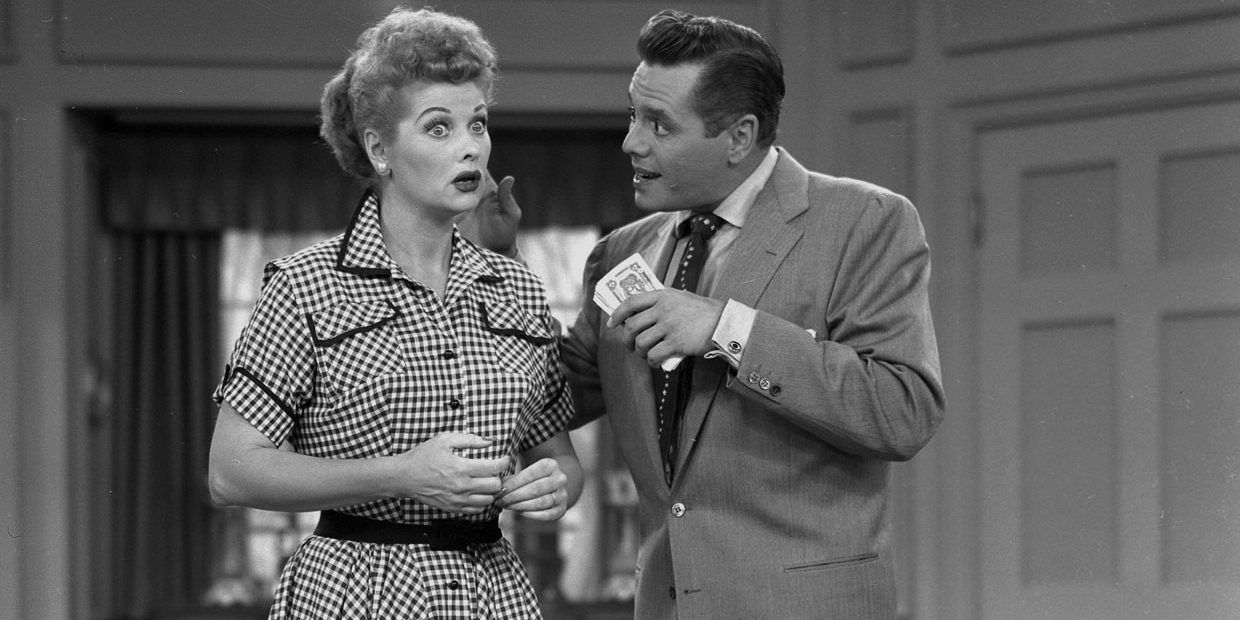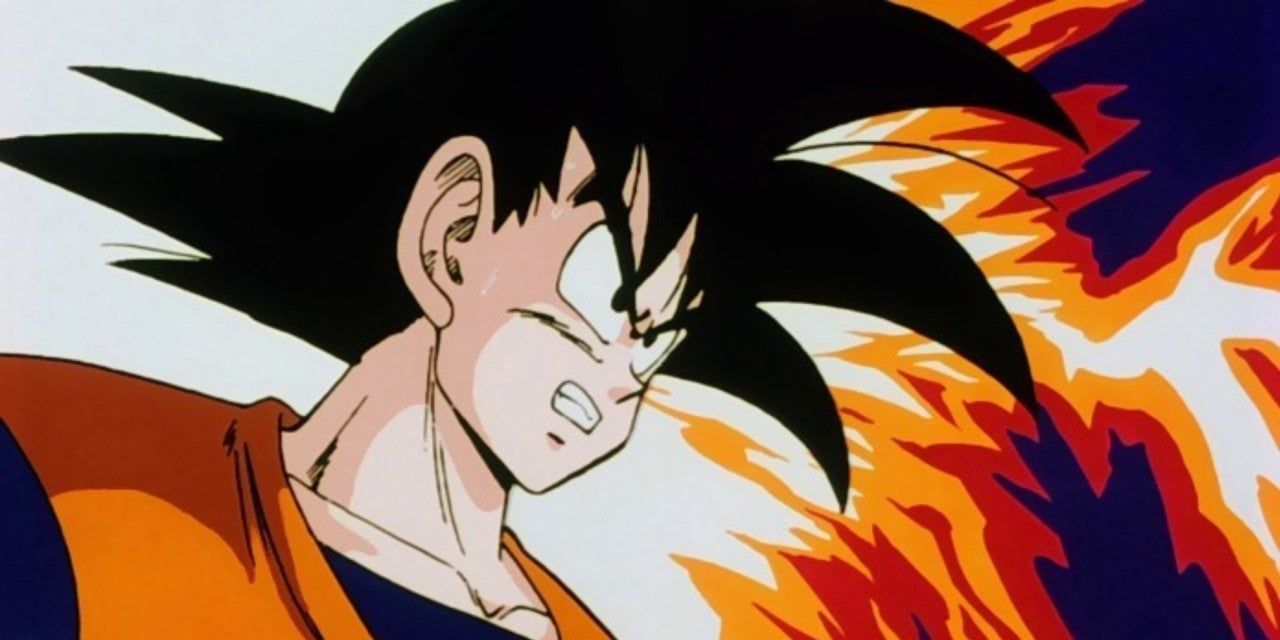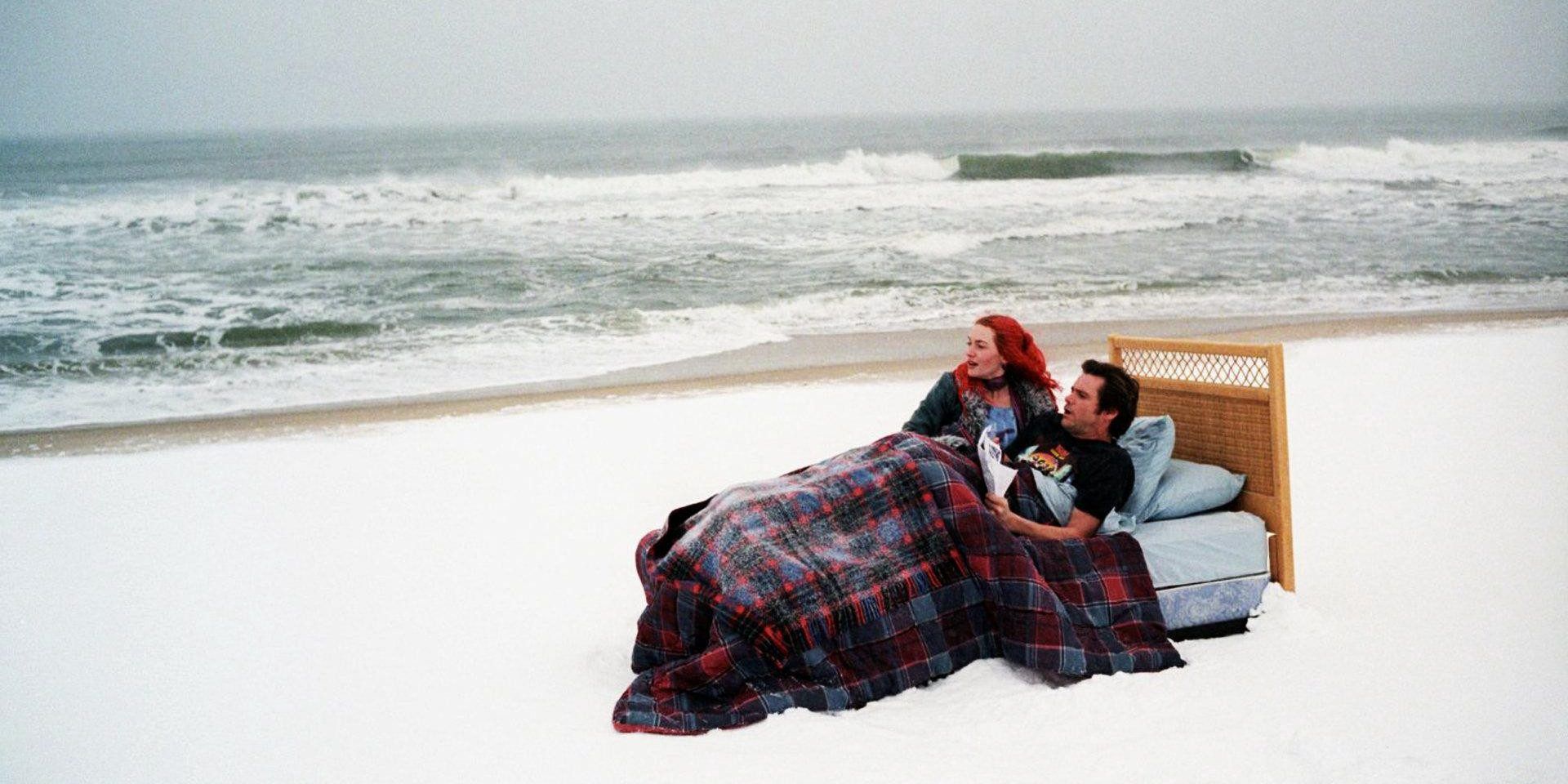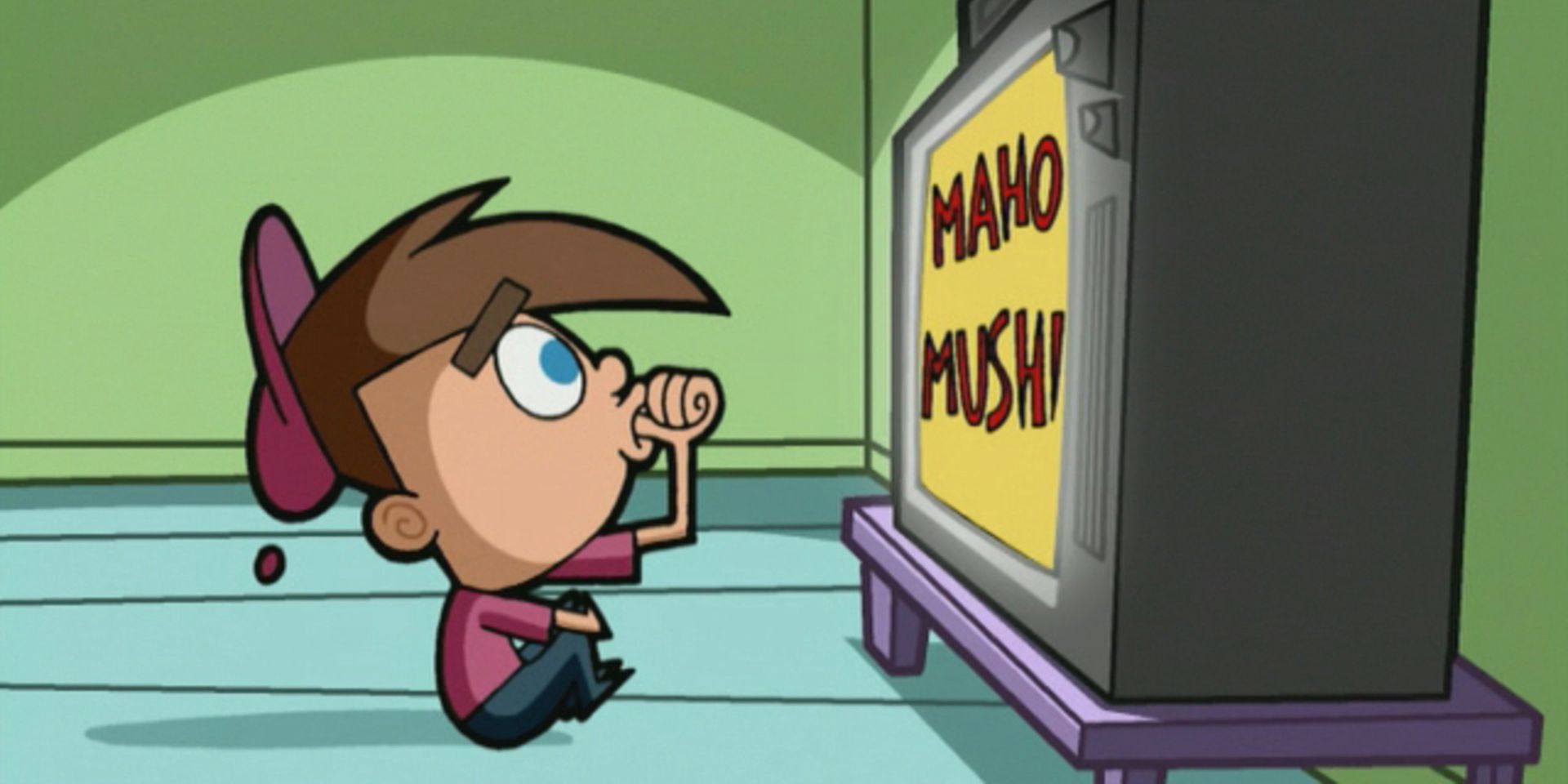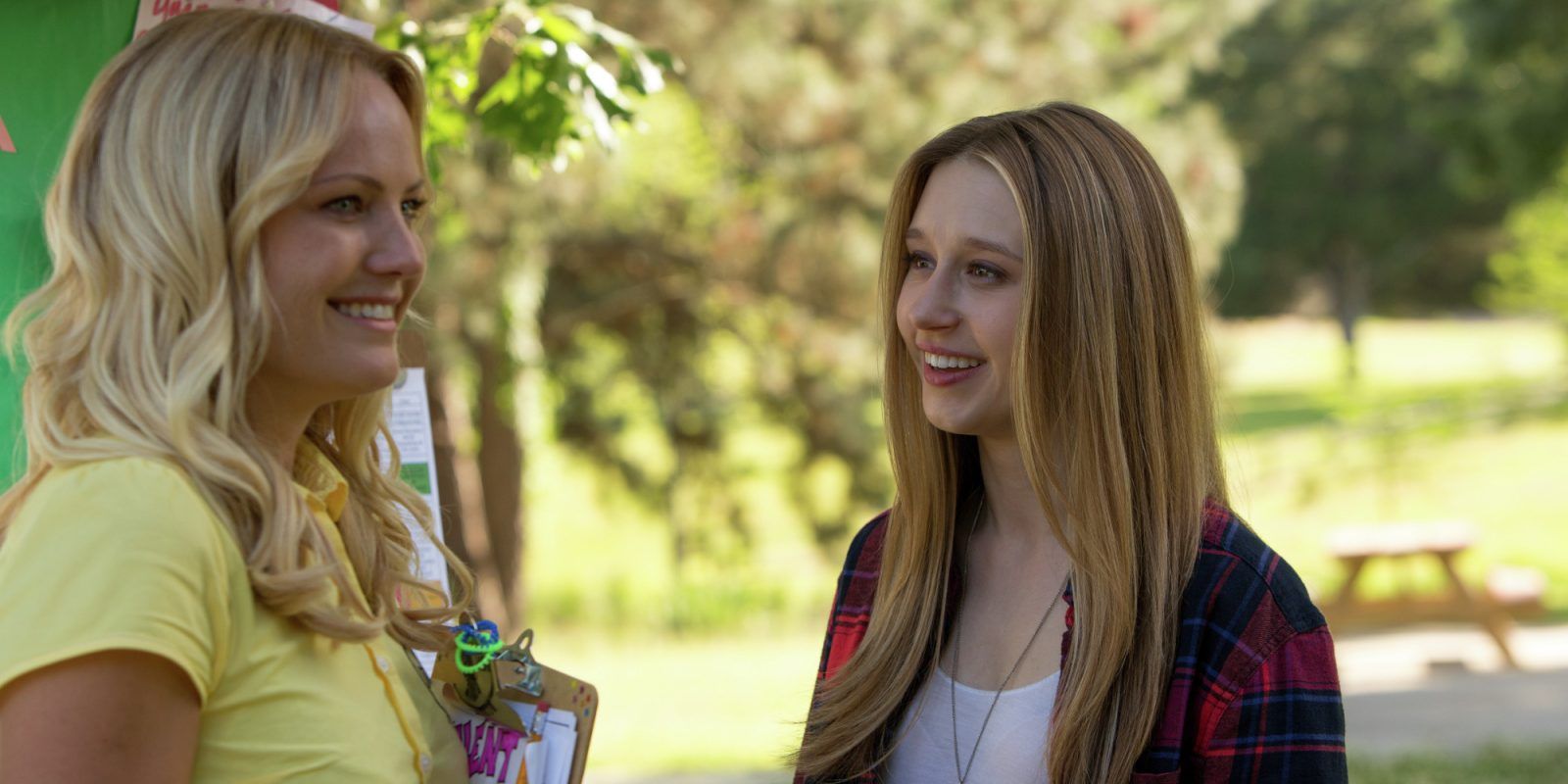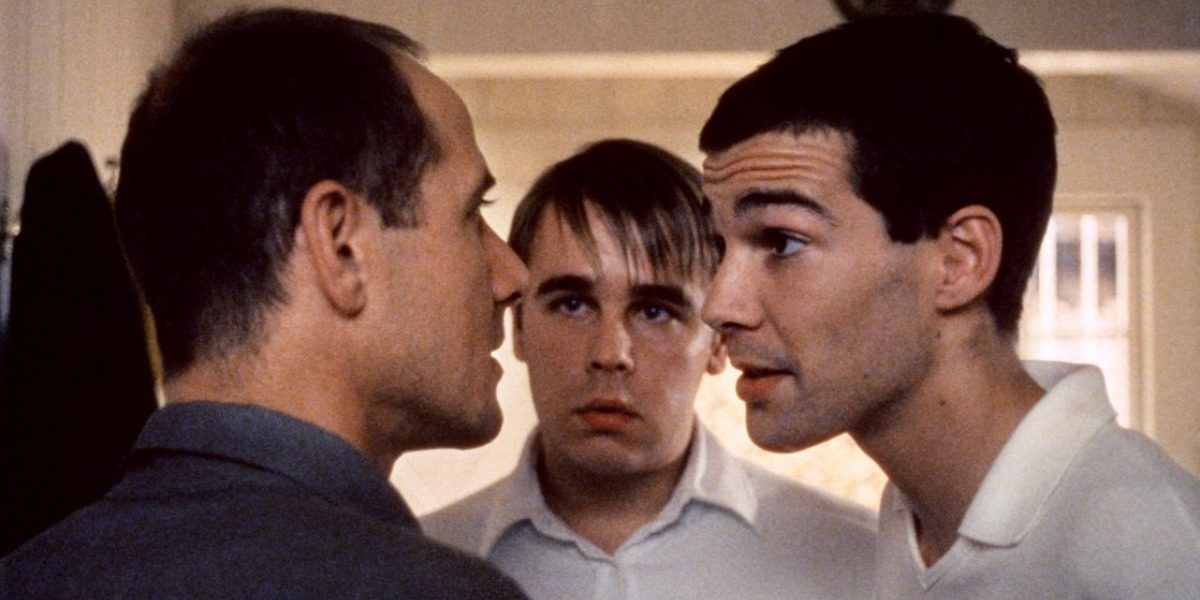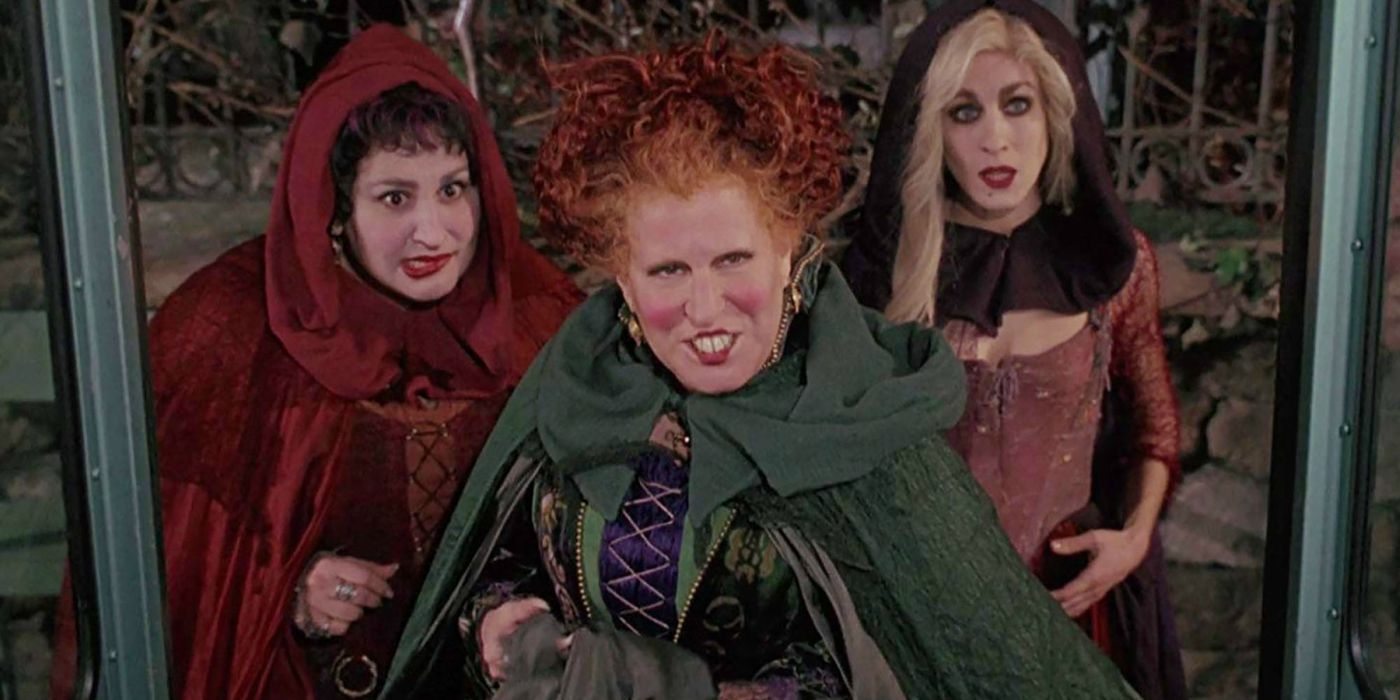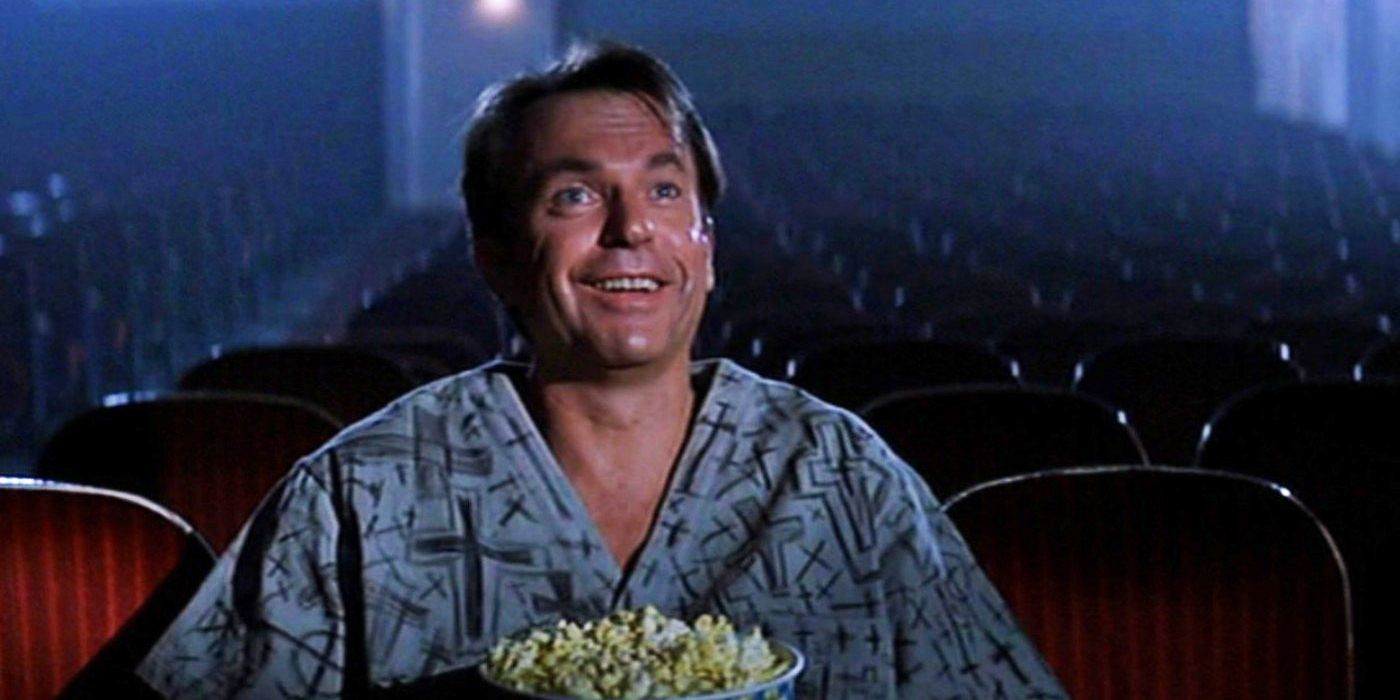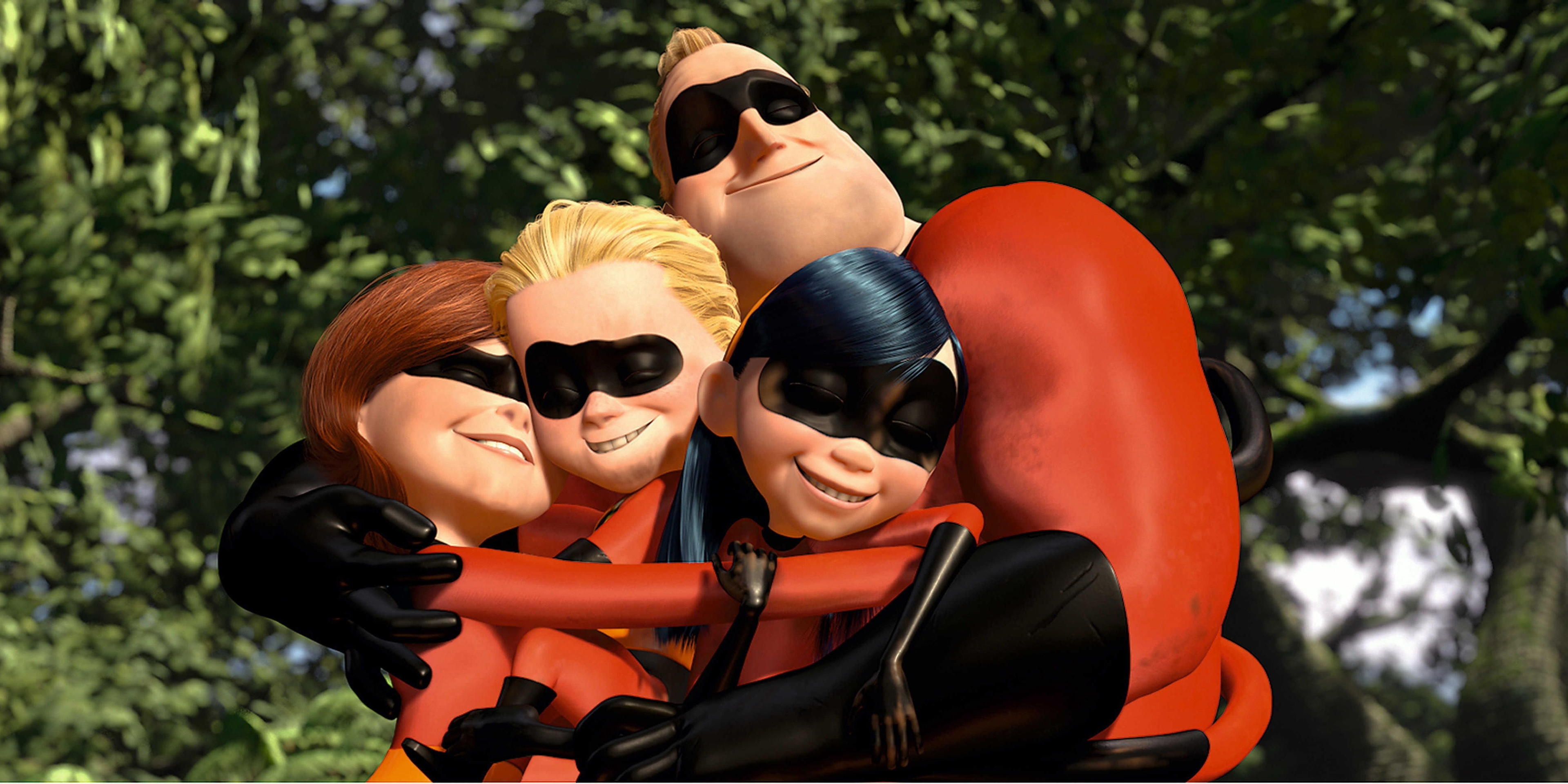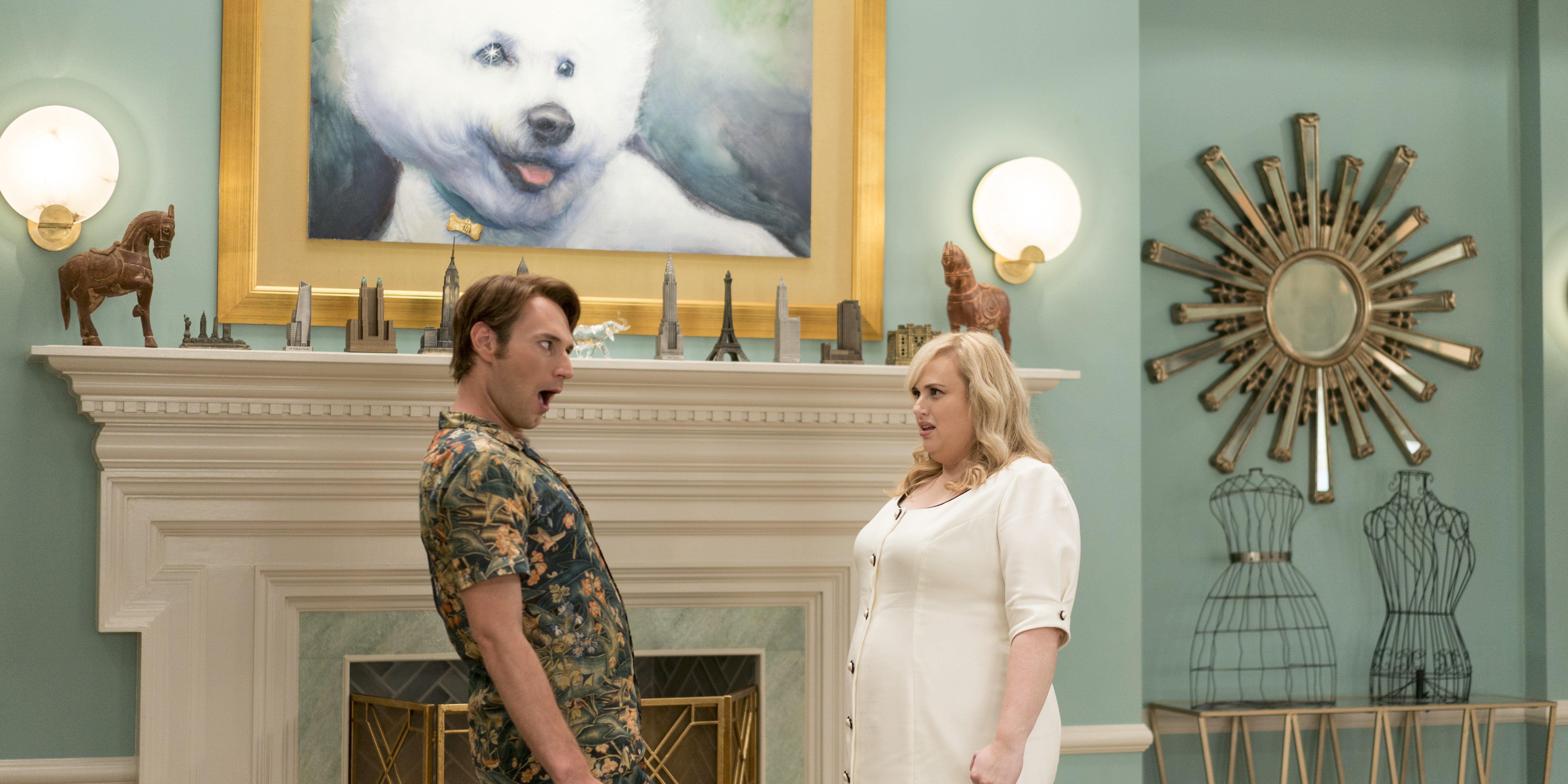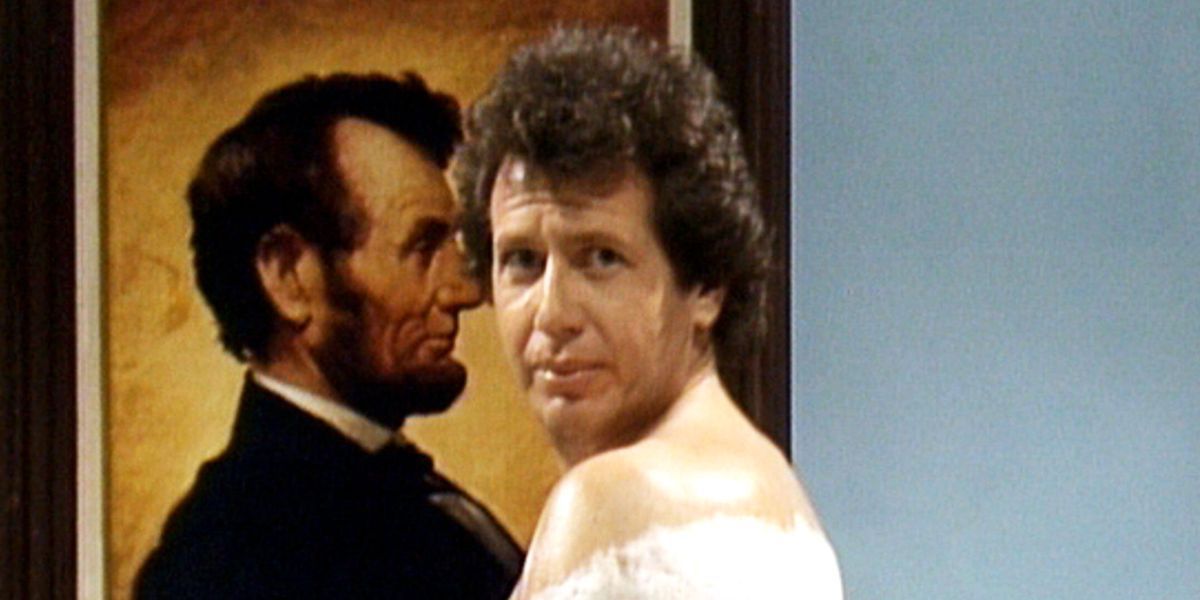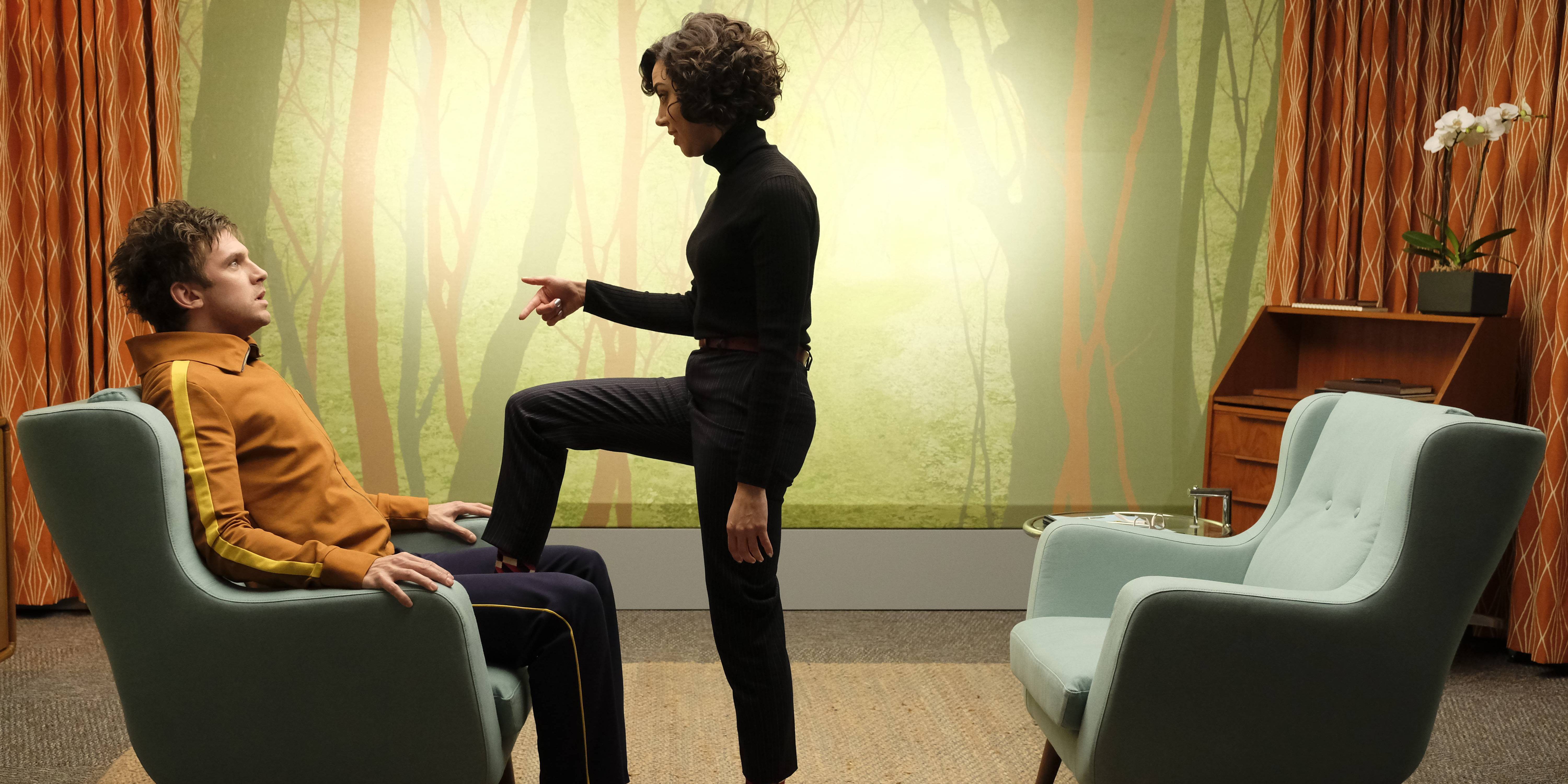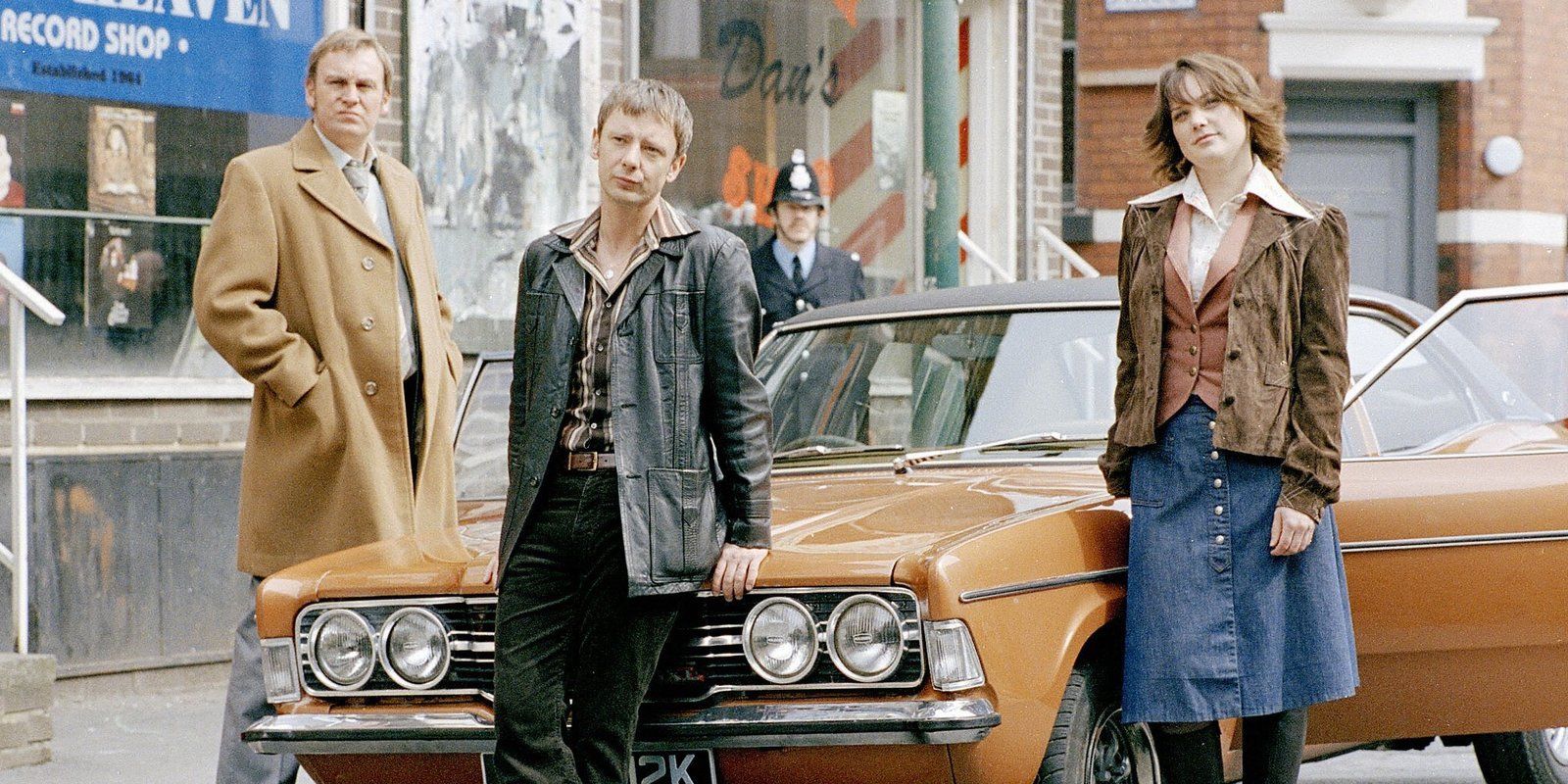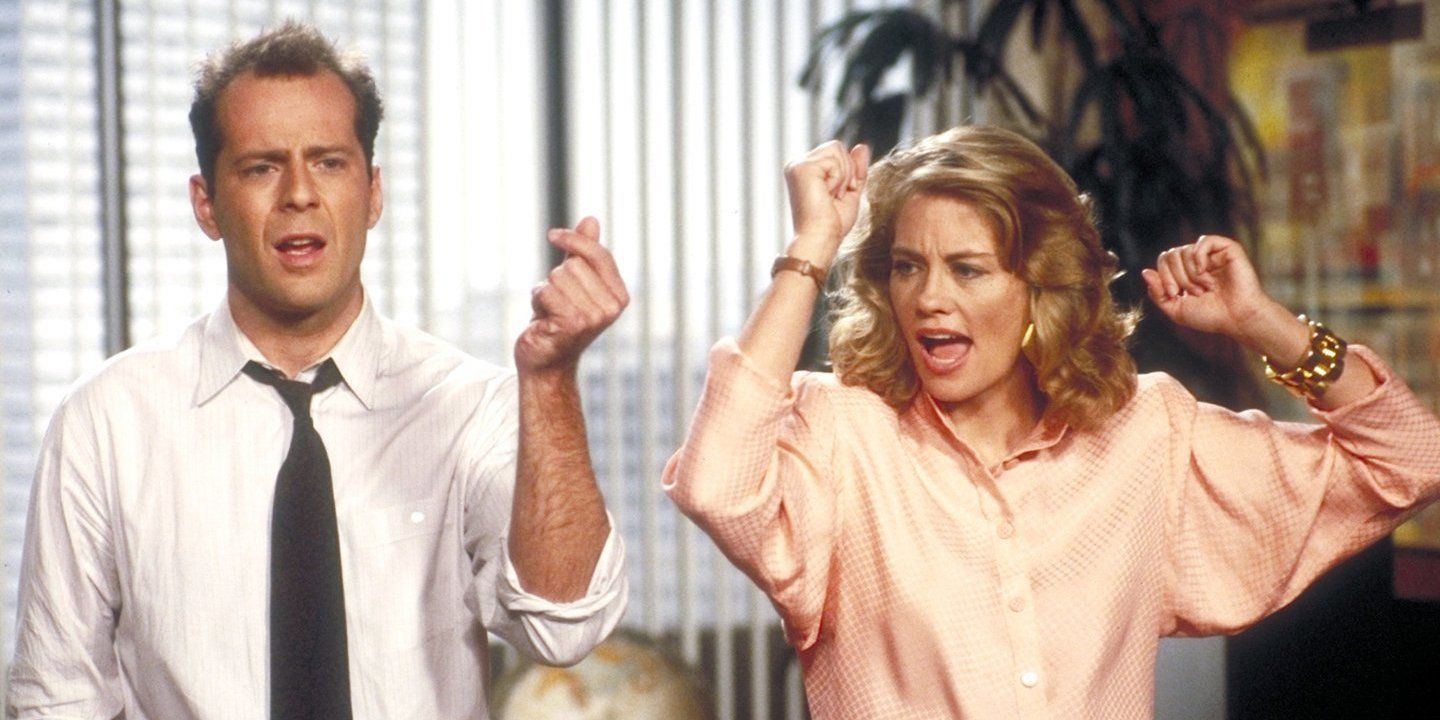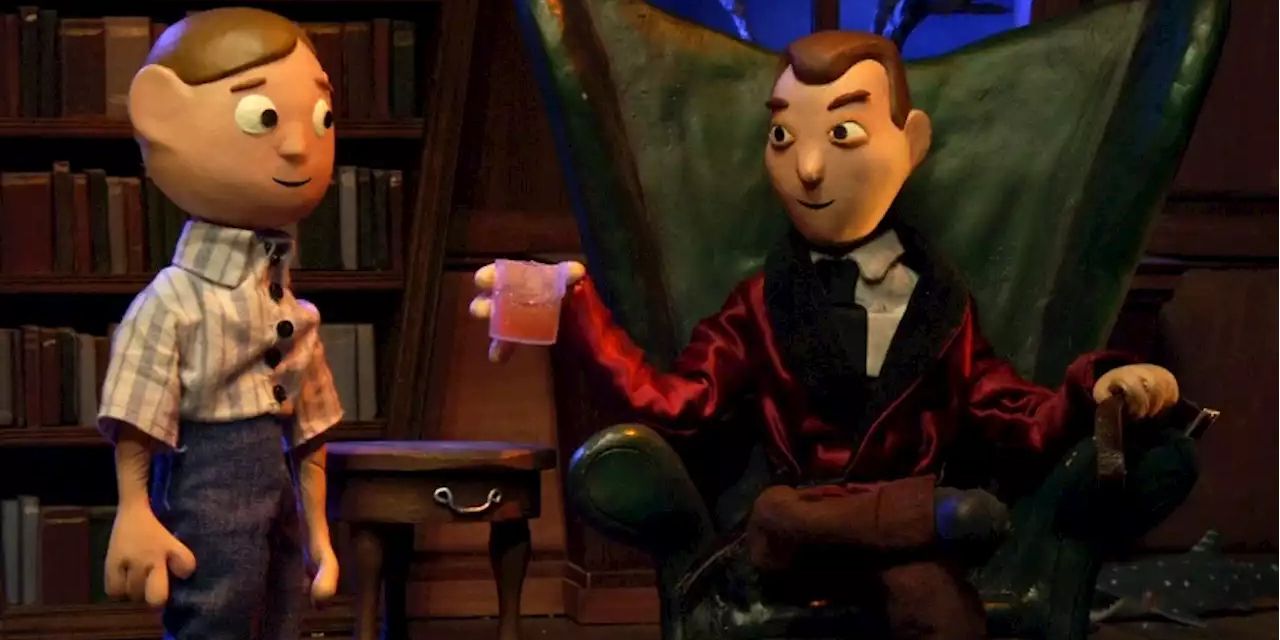[Editor's note: The following contains spoilers through the Season 1 finale of WandaVision, "The Series Finale."]
WandaVision is over. We know, we know, that's very difficult to accept. But after nine episodes of meta-fictional trickery, sitcom-hopping time warps, and Marvel Cinematic Universe thrills, the tale of Wanda Maximoff (Elizabeth Olsen) and her grieving the death of her robot husband Vision (Paul Bettany) has come to a close. But if the lesson of WandaVision is to accept loss as an essential part of life to lean into, not run away from, we must accept the end of this incredible, watercooler-capturing television series... by watching more stuff!
We've gathered you a list of 32 television series and films that might help scratch that WandaVision itch. Whether these works involve self-referentiality, themes about grief, literal witchcraft, or genre scenes with a brain, we hope they will help fill in that WandaVision shaped hole and expand your viewing appetite, too. Enjoy!
Awake (2012)
A one-season wonder that aired on NBC in 2012, limping through low ratings but a passionate fan base until its untimely cancellation, Awake is a surreal, supernatural, and almost aggressively emotional cop drama like you've never seen. Jason Isaacs stars as an officer caught in a car accident in which his wife Laura Allen tragically died. Er, wait... was he caught in a car accident in which his son Dylan Minnette tragically died?
Both realities are true, and neither reality is true. And while Isaacs is ostensibly searching for which version of life is correct, transporting from one to the other whenever he falls asleep (signified by beautifully shot, impeccably color-coded milieus), we ultimately sense that he'd rather live in both fake realities than come to terms with any sense of real loss, real grief, and real closure. These realities may not be superficially peaceful like a Westview, but like a Wanda, Isaacs would rather live in a fake limbo that gives him everything he wants, no matter what pain it causes others. Or, what pain it ultimately causes himself. - Gregory Lawrence
Being John Malkovich
For a Disney-sanctioned comic book TV show, WandaVision is full of the degrading psychological horror that results from a force taking over one's body with a new soul and identity, or of a fundamentally selfish need for control. Being John Malkovich, in its very comedic, Charlie Kaufman/Spike Jonze kind of way, wrestles with these themes about as literally as you'll ever see in a motion picture. The premise is wild: What if you could walk through a tiny door and take over a human body for a short period of time? Specifically, the human body of actor John Malkovich? This concept, so high that it cracks through the purposefully low ceilings of John Cusack's office building, yields a series of strange results, and strange conclusions about autonomy, entitlement, and self-image. It's also, like, really funny. - Gregory Lawrence
Bewitched (2005)
Bewitched is one of the biggest, most explicit classic sitcom references in WandaVision. But the 2005 Nora Ephron-directed film version is not a straight adaptation. Like WandaVision, there are much more levels of meta trickery going on.
Nicole Kidman is, straight up, a witch. For real, no foolin'. But when she gets an opportunity to audition for — wait for it — a TV reboot of the classic TV sitcom Bewitched, she must walk the line between "being an authentic witch for television" and "not being enough of an authentic witch to freak the hell out of her human coworkers" (shades of the Westview magic show). These pieces of metafictional trickery and identity crises are given that classic light and bubbly Ephron sheen, and Kidman is bolstered by an impeccable supporting comedy cast including Will Ferrell, Shirley MacLaine, Michael Caine, Jason Schwartzman, Kristin Chenoweth, Stephen Colbert, David Alan Grier, and Steve Carell. This one's slept on, I tell ya! - Gregory Lawrence
Black Mirror - "USS Callister"
While WandaVision had its fun playing with the wildly evolving world of sitcoms, one of the best Black Mirror installments to date is laser-focused on sci-fi TV — very specifically the granddaddy of them all, Star Trek. Jesse Plemons stars (with an Emmy-nominated performance) in "USS Callister" as a game designer who trades his real-life awkwardness for William Shatner-esque swagger in a virtual world of his own creation; the parallels to WandaVision are pretty clear here, especially when it comes to the question of who's in control, and what that means for the other souls trapped in this unreality. There are some extremely dark twists and turns over the course of this nearly-feature-length episode, but not only is it a thrilling installment of the anthology series, it's hugely rewarding in its details. Watching how the production design and cinematography shift to capture different eras of Trek is just as satisfying as watching Wanda and Vision's house evolve from "decade" to "decade." - Liz Shannon Miller
The Cabin in the Woods
Something I especially enjoyed about WandaVision is how much it clearly loved sitcom tropes, recognizing they exist but using them to its advantage to tell a unique story. That’s what The Cabin in the Woods does for the good ol’ horror genre. If you still haven’t gotten around to watching Drew Goddard’s 2011 genre love letter, I’m hesitant to even go into too much detail, because I cherish my first-time watch of this movie. Like WandaVision, Cabin in the Woods drops you into a very familiar situation: Five young adults, who are not NOT walking horror stereotypes, ignore the gas station attendant telling them to turn back and decide to stay the weekend at an isolated woodland shack straight out of The Evil Dead. Things get scary in a classic way. Then things get scary in a surreal way. And then things kind’ve completely break down into a batshit homage to hundreds of years of horror, as you slowly realize Cabin in the Woods is working on the same meta, behind-the-scenes level as WandaVision, except with 100% more werewolves. Plus, for a bonus MCU connection, you get Chris Hemsworth after the debut of Thor but displaying the type of lunkhead comedic gifts he wouldn’t get to show off until Thor: Ragnarok. - Vinnie Mancuso
Classic Sitcoms
Were your favorite parts of WandaVision the goofy, accurately genre-aping sitcom shenanigans, before it got all Marvely and action-y? Well, you've got a few options on what classic TV sitcoms to watch to see all their inspirations. You can pause in Episode 8, "Previously On," to see Wanda's basket of DVDs. You can plow through my extensive look at the specific shows and TV tropes referenced and played with throughout the series.
Or, you can take a look at this brief list of programs, all of which give you a great walk down TV memory lane and a great bible for what makes WandaVision tick: The Honeymooners, I Love Lucy, Bewitched, The Dick Van Dyke Show, I Dream of Jeannie, The Addams Family, The Munsters, All in the Family, The Jeffersons, The Brady Bunch, Three’s Company, Full House, Roseanne, Family Matters, Growing Pains, Who's the Boss?, Family Ties, Malcolm in the Middle, Grounded for Life, Titus, The Office, Modern Family, Happy Endings, and 30 Rock. - Gregory Lawrence
Dragon Ball Z
When I watched the final episode of WandaVision, the aptly named "The Series Finale," I saw magical forces flying through the air, trading power blasts, hand-to-hand combat, and intense philosophical barbs back and forth. And I thought, immediately, of Dragon Ball Z.
Likely the most influential, ubiquitous anime series in American pop culture, DBZ tells a lot of story over a lot of battles over a lot of episodes, mostly following Saiyan warrior Goku and his crew of good as they take down evil forces with unbelievable forces of power, magic, and majesty. It's an intergalactic, fantastical, combat-filled soap opera, a series easy to dive into and get lost in, especially if you loved Wanda and Agatha's magical battle and wanted more. What is the MCU if not anime storytelling persevering? - Gregory Lawrence
Eternal Sunshine of the Spotless Mind
If you just simply cannot get enough of the emotional devastation throughout WandaVision, then Eternal Sunshine of the Spotless Mind keeps that train rolling. This Oscar-nominated 2004 film is a tragi-comic romantic sci-fi film about a broken-up couple who separately seek out a service that offers to wipe someone from your memory. The problem is, they keep running into each other and falling in love all over again, then wiping their memories again, etc., etc. Written by Charlie Kaufman and directed by Michel Gondry, it’s a wholly unique twist on love and relationships, with Jim Carrey and Kate Winslet delivering emotional and heartfelt performances as the couple at the story’s center. Much like WandaVision it speaks to a common experience – in this case, difficult on-again/off-again relationships and love’s undying effect – in ways that hit a little too close to home. – Adam Chitwood
The Fairly OddParents - "Channel Chasers"
The Fairly OddParents is a particularly sharp, kinetic, and imaginative Nickelodeon cartoon. But in the multi-episode movie special "Channel Chasers," Butch Hartman and his team kicked things up several notches.
When Timmy Turner (Tara Strong) is forbidden from watching television after a particularly intense day of causing mischief, he uses his fairly odd fairy godparents (Daran Norris as Cosmo and Susanne Blakeslee as, gasp, Wanda!) to wish for a universal remote that can transport him into a TV world where he hops from channel to channel, escaping from the stresses of the real world into the pleasures of obvious show parodies like The Flintstones, The Jetsons, Johnny Quest, Space Ghost, Fat Albert, Rugrats, Scooby Doo, Speed Racer, Sesame Street, Blue's Clues, Batman: The Animated Series, Dragon Ball Z, and many, many more. All of these genres, styles, and animation forms are aped pitch perfectly, which must've been quite the ordeal for the animation. But beyond the fun interactions with cartoon tropes, "Channel Chasers" comes to a similar lesson as WandaVision to our engagement with television as a comfort when the pains of growing up in the real world are too severe to bear. You can't run from reality forever, even as fun as escapes can be. It's all about moderation, acknowledgment, and acceptance. - Gregory Lawrence
The Final Girls
If you liked the way WandaVision stepped through the screen and embraced familiar tropes to unravel a story about grief, oh boy, do I have a recommendation for you. The 2015 horror-comedy The Final Girls, sends Max, a grieving teenage girl (Taissa Farmiga), through a literal movie screen, straight into the 1980s slasher movie that made her recently deceased mother (Malin Akerman) a horror icon.
In the same way that WandaVision showcased an obvious affection for sitcom tropes and incorporated them into the function of the narrative itself, The Final Girls overflows with love for the slasher genre and uses the familiar conventions as a means for Max to confront her loss in ways the real world could never offer – and a means for some absolutely killer comedy bits. Speaking of which, and also like WandaVision, while we’re at it, the supporting ensemble is just aces, featuring the always on-point line delivery from folks like Adam DeVine, Alia Shawkat, and Thomas Middleditch, an unforgettable physical comedy turn from Angela Trimbur (who mines her recurring bit as the quintessential 80s slasher bimbo for all its worth), and a really striking dramatic performance from Nina Dobrev, who gets to play out some of the script’s most surprising and rewarding subversions.
The Final Girls easily joins the ranks of films like Scream, Shaun of the Dead, and Behind the Mask as one of the best meta-horror comedies, and though it has a very distinct tone and genre from WandaVision, at their core, they’re asking the very same question - “what is grief, if not love persevering?” - Haleigh Foutch
Funny Games (1997)
I literally cannot wait to recommend Michael Haneke’s Funny Games to fans of Marvel’s WandaVision.
One of the best aspects of WandaVision (or one of the most fun, at least) was watching the show play with firmly established sitcom tropes from the past half-century of American television. Haneke’s 1997 psychological thriller, about two deranged young men who take a family of three hostage and torment them with cruel mind games, also plays around with tropes from American entertainment, but that’s about where the similarities end. Haneke’s film is an indictment of how American movies glorify violence, whether it be audiences cheering for the good guys heroically murdering the bad guys or finding grim satisfaction in watching a charismatic villain wreak havoc. Paul (Arno Frisch), the film’s primary antagonist, is like an evil Bugs Bunny - he exudes pure charm as he torments his captives with demented pranks, literally winking into the camera as he bends the rules of the medium to his will. (The film’s climax involves Paul shattering the fourth wall in a completely unexpected way, snatching a conventional Hollywood ending away from us and replacing it with something much more sinister.) Funny Games is not an easy movie to watch, but if WandaVision’s deconstruction of sitcom tropes appealed to you, there’s a lot to sink your teeth into in Haneke’s film. Also, it features an almost identical sequence involving a dog. - Tom Reimann
Hocus Pocus
Question: Do you still have “Agatha All Along” stuck in your head? Follow-up question: Do you dream of wielding magic and blasting multi-colored energy beams from your palms? Follow-follow-up question: Are you interested in 17th-century witchcraft after learning about Agatha Harkness’ origins?
If you answered “yes” to any combination of these questions, then you absolutely must watch Hocus Pocus after you finish up your WandaVision binge sesh. Like Agatha Harkness, the Sanderson sisters — Winnie (Bette Midler), Sarah (Sarah Jessica Parker) and Mary (Kathy Najimy) — are three Salem witches who face serious punishment for their witchy crimes. What have they done? Well, in order to maintain their youthful glow and supernatural power, the Sanderson sisters have begun sucking the life-force out of Salem’s local youth population. Condemned to death in the 17th century, the Sandersons are resurrected 300 years later and attempt to resume their search children to keep them young forever — a plan that three Gen X Salem kids try to stop. If you need your fix of witches who seek nothing but almighty supernatural power, then Hocus Pocus is a must-watch. (Bonus: Hocus Pocus is also available to stream on Disney+, so you don’t have to search too hard to find it!) - Allie Gemmill
In the Mouth of Madness
Horror auteur John Carpenter’s 1994 film In the Mouth of Madness is the greatest H.P. Lovecraft adaptation ever made that is not actually based on any of Lovecraft’s work. So what on earth does it have to do with WandaVision? Well, the movie is about a reclusive author of weird fiction named Sutter Cane (Jürgen Prochnow) who seems to have the supernatural ability to shape the world around him according to whatever he writes. There’s even a painful scene involving a man who realizes he is doomed to whatever fate Cane scripts for him, which is not unlike the waking nightmare Wanda inflicts on the residents of Westview, New Jersey. In the Mouth of Madness also shares a bit of WandaVision’s playful meta tone, albeit with a much darker bent. If Wanda’s time in Westview whet your appetite for alternate reality narratives that fold in on themselves in mind-bending ways, you’ll appreciate Carpenter’s deviously mischievous tale. - Tom Reimann
The Incredibles
Setting aside the fact that The Incredibles was literally on the movie marquee in the episode “All-New Halloween Spooktacular!”, I don’t know how you look at the season finale where Wanda, Vision, and their two superpowered kids are doing a superhero fight pose and not think of Brad Bird’s 2004 Pixar movie. And the similarities don’t end at just having a superpowered family. Like The Incredibles, WandaVision is about superpowered parents where one is hiding a secret from the other so they can relive a time that made sense by indulging their nostalgic impulses, but those nostalgic impulses are being used by the villain to manipulate the hero. If you need more superpowered families in your life, The Incredibles definitely has you covered. – Matt Goldberg
Isn't It Romantic
For those who really sparked to how WandaVision riffed on familiar family sitcom tropes, 2019’s romantic comedy Isn’t It Romantic hits the spot. This Rebel Wilson-fronted film follows a woman who finds herself in a world where everything around her plays out like a PG-13 romantic comedy – cliches and all. The film both pokes fun at and leans into the tropes of romcoms, from the best friend who’s really the perfect match to random musical numbers. Wilson, Liam Hemsworth, and Adam DeVine deliver the goods ensemble-wise, and while the film still works as a solid romance story, it’s mostly a fun Easter egg-filled dive into the world of a popular genre. – Adam Chitwood
It's Garry Shandling's Show.
The sheer bluntness and audacity of this particular sitcom's metatextual tendencies are right there in the title, especially that emphatic period: It's Garry Shandling's Show. Airing on Showtime from 1986-1990, comedy maestro Garry Shandling played, well, comedy maestro Garry Shandling, who also happened to know he was the lead character in a sitcom called It's Garry Shandling's Show. Grabbing the baton from self-aware sitcom king George Burns and sprinting with it, Shandling doesn't so much break the fourth wall as he does exist in a world where it does not exist — he doesn't just comment to the camera, he literally walks out into the studio audience and does bits with them. While the episodes have the expected kind of storylines you'd expect from a show about comedians, Shandling's chutzpah, willingness to experiment, and deadpan frankness about it all rises this ahead-of-its-time gem above the pile. It's devastatingly, honestly, disquietingly funny in its endearing love and savage satire of the multi-cam sitcom form. - Gregory Lawrence
Legion
If WandaVision has you hankering for some more dangerously powerful Marvel characters who straddle the line of villainy, FX’s original series Legion might be the perfect content come-down from the WandaVision hype. For their oddball X-Men adjacent phantasmagoria, FX turned to Fargo series creator Noah Hawley to bring his signature strange streak (and A+ ensemble casting) to the world of mutants. WandaVision had its weird moments, but Legion is a weird moment and, from start to finish, all three seasons lean all the way in on the mindfuckery (a bit too much for me at times, but your mileage may vary).
But Legion and WandaVision don’t just share an appreciation for strange superheroes and unconventional narratives, they’re both fundamentally rooted in exploring mental health and claiming your identity by facing your trauma. And if you’re a fan of awards-worthy performances in your comic adaptations, you’ll find plenty here, most notably Dan Stevens, who shares Olsen’s ability to make your heart ache for a character that can occasionally be outright terrifying, and Aubrey Plaza seemingly having the time of her life in an absolutely delightful, delicious role that’s best left undescribed for the folks who haven’t seen it yet. And Jean Smart’s in it too, so obviously you should watch it. – Haleigh Foutch
Life on Mars (2006-2007)
My name is Sam Tyler. I had an accident, and I woke up in 1973. Am I mad, in a coma, or back in time? Whatever's happened, it's like I've landed on a different planet. Now, maybe if I can work out the reason, I can get home.
So begins the opening credits of one of the BBC's great dramas of the 21st century, which takes a surrealist approach to the story of Sam Tyler (John Simm), a modern-day police detective sucked back to an era where police work was a far more rough-and-tumble pursuit, as epitomized by Sam's new boss Gene Hunt (Philip Glenister). Life on Mars is focused on the extreme contrasts between Sam's world and Gene's, while having plenty of fun playing with 1970s tropes and fashions like WandaVision Episode 3 did — that, plus a compelling procedural element, makes it a gem worth seeking out. (The U.S. adaptation isn't half-bad, and there's also a British sequel series called Ashes to Ashes that's worth checking out. But go with the original flavor first.) - Liz Shannon Miller
Moonlighting
Bruce Willis and Cybill Shepherd star as a pair of private detectives on Moonlighting, a 1980s ABC show that set the bar for genre-hopping, self-referential, fantastical, and accessibly complicated storytelling in the television form. Our two leading performers play these roles as if Mulder and Scully had a sense of humor, or if Wanda and Vision had a "will they/won't they" element to their relationship. And as they undergo on their cases, trading fast-paced banter with the professionalism of a classic screwball comedy and the modernism of the MTV generation, the show around them is more than willing to dissolve into delightful chaos. Noir, Shakespeare, Home Alone-esque live action cartoon violence — Moonlighting gives you all of it and more. Just an absolutely crackling show, this one! - Gregory Lawrence
Moral Orel
Squint hard enough, or allow the TV sitcom fantasy to wash over you enough, and Wanda's version of Westview feels like a pleasant enough place to live, even saccharine in its construction. Those vibes are all over the place in Moral Orel, a Rankin/Bass-styled Adult Swim series about a young boy named Orel (Carolyn Lawrence) who lives in the squeaky-clean town of Moralton with his squeaky-clean family and his squeaky-clean ultra-Christian lifestyle. As this is an Adult Swim show, this cleanliness obviously gets corrupted. The series starts with Orel dealing with the types of "dirty" content you might expect from an adult animated show — sexual temptations, alcohol, swear words — while cutting it with a bit of that "darkness is lurking" energy we find in some of the earlier, creepier moments of WandaVision.
And then, near the end of the show's run, something much, much worse happens. As WandaVision's facade of normalcy begins to erode, revealing the depths of the horrors Wanda is causing, so too does Moralton's — and especially Orel's family. I'll give as strong a content warning as possible to the back half of this darker-than-dark series, which peels back the superficial lies we tell ourselves to be "happy" revealing a festering, rotting series of emotional traumas, pains, and outright cruelties. It's an astonishingly bleak, dramatic, and straight-up wild turn for an adult animated comedy to take — and if you walked away from WandaVision being like "I want more of people accusing Wanda of emotional murder!", this is the show for you. - Gregory Lawrence

